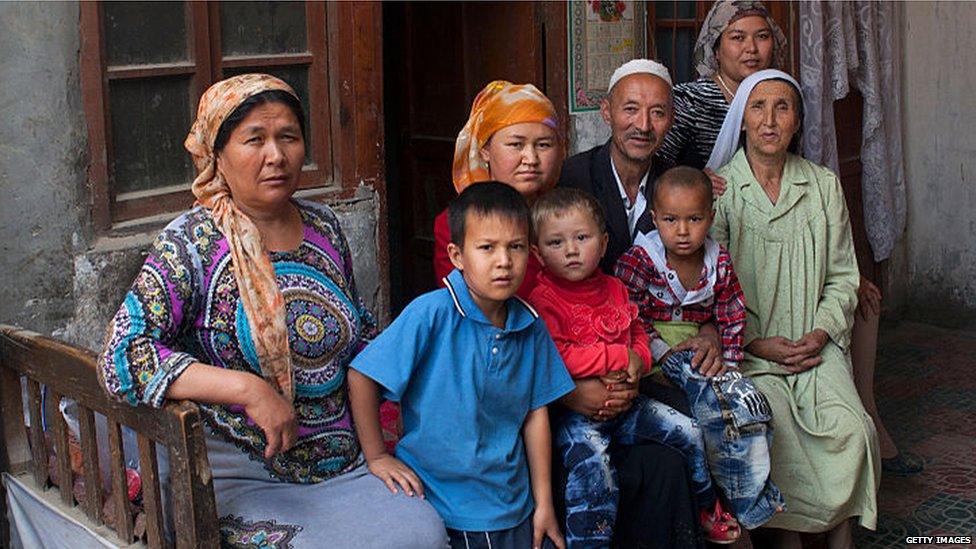China publicises Xinjiang 'anti-terror' operations
- Published
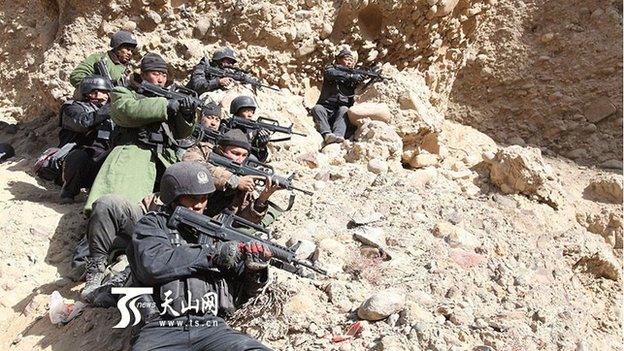
Chinese state media published images of troops searching a remote area of Xinjiang
In late September the British Chancellor George Osborne was on his controversial trade trip to Xinjiang when news of the latest outbreak of serious violence began to emerge.
The US government-funded Radio Free Asia (RFA), seen by many as one of the few reliable sources of information on Xinjiang, reported that, a few days earlier, a group of "knife wielding suspects" had killed at least 40 workers and police at a mine in the remote Aksu prefecture.
As is often the case, there was no confirmation at the time from any official Chinese sources and the story had no bearing on Mr Osborne's visit.
But now we do have the confirmation and the account given paints a troubling backdrop to what was meant to be a rare showcasing of Xinjiang and its economic prospects to the outside world.
In the first public mention of the coalmine assault, the Xinjiang Daily describes it as "a violent terrorist attack under the direct command of an overseas extremist organisation".
Sixteen people, including five police officers were killed, it said - far fewer than suggested by the earlier RFA report - and another 18 people injured.
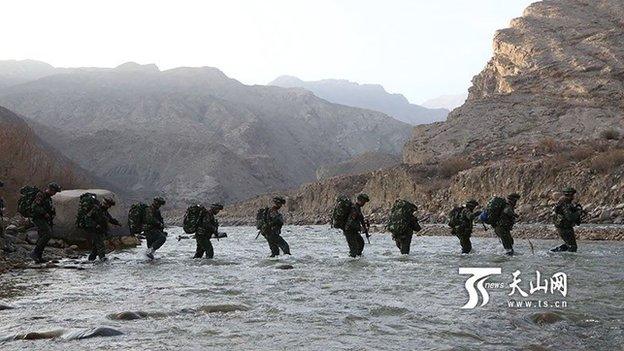
State media said Chinese forces had undertaken a "large-scale" manhunt in the region
It is unclear why the government waited so long to confirm that the incident took place but the timing will raise questions, particularly because the first details of the extraordinary police response emerged on Saturday, the day after the Paris attacks.
Making reference to the bloody events unfolding in France, China's Ministry of Public Security posted dramatic pictures of security forces searching a remote area of rugged terrain in Xinjiang, engaged in a large-scale manhunt for a group of "terrorists."
The message seemed to be clear: China is a victim too.
"Today, Paris encountered the most serious terrorist attacks in its history," said the accompanying text.
"Chinese Xinjiang police made an important achievement against terrorists after a 56 day fight!!!"
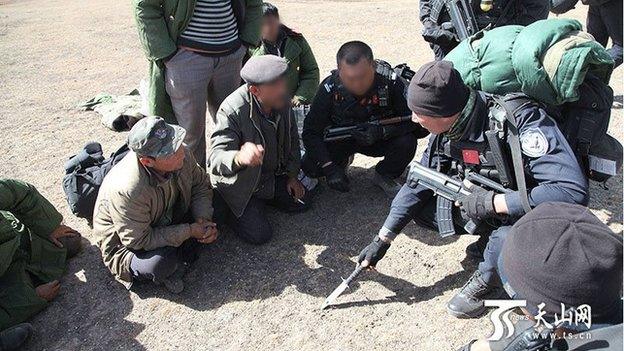
The images were deleted, only to be reposted later
Perhaps recognising that the post might be viewed by some as crude political opportunism and in poor taste, it was quickly deleted.
But six days later, alongside the account of the violence at the mine, the story and the photographs of the police operation have resurfaced.
The reports say that a total of 10,000 people were involved, including, the photos seem to suggest, a kind of people's militia, armed with sticks and clubs.
"Aside from one person who surrendered, 28 thugs were completely annihilated," the newspaper said.
China is engaged in a heavy security crackdown on what it says is the growing threat of separatist terrorists among Xinjiang's mainly Muslim Uighur population.
Over the past week, senior Chinese leaders have been urging foreign governments to see its restive western region as part of the international struggle against terrorism.
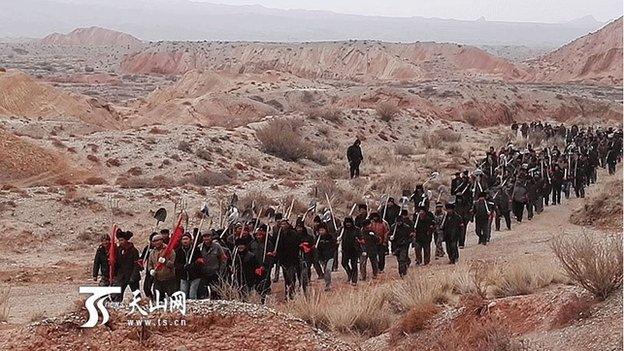
The images seem to suggest a kind of people's militia was involved in the operation
Today's reports linking the Aksu mine attack to "overseas extremists" repeats a line often used by state media, but one that is treated with some scepticism by outside observers.
Although there can be no doubt that violent attacks on Chinese civilian targets have grown more extreme in recent years, they have mostly involved crude weaponry.
Some experts suggest this is one of the signs that the militants are part of a more limited, home-grown network, rather than a sophisticated, well funded cross-border conspiracy
Human rights groups say the harsh restrictions placed on Uighur religion and culture are fuelling resentment and violence.
The photographs of the manhunt are likely to confirm their suspicions that the heavy security response is all too often part of the problem.
In another recent report, quoting local Xinjiang police sources, RFA suggests that 17 of those killed came from just three families and included women and children.
The fact that such an operation was being launched while Chancellor George Osborne was in the region plugging British business ties will once again raise the question of whether he should have been there at all.
- Published2 January 2015
- Published23 September 2015
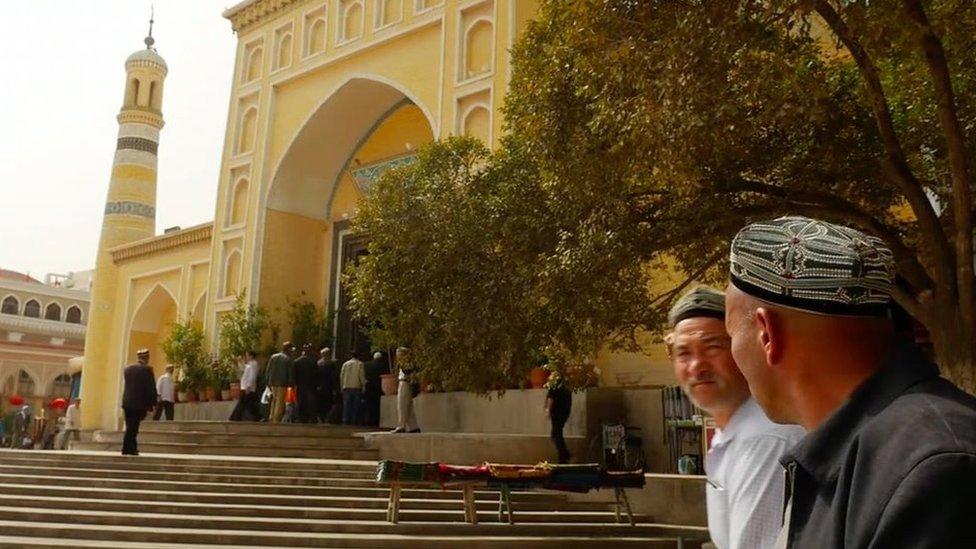
- Published18 November 2015
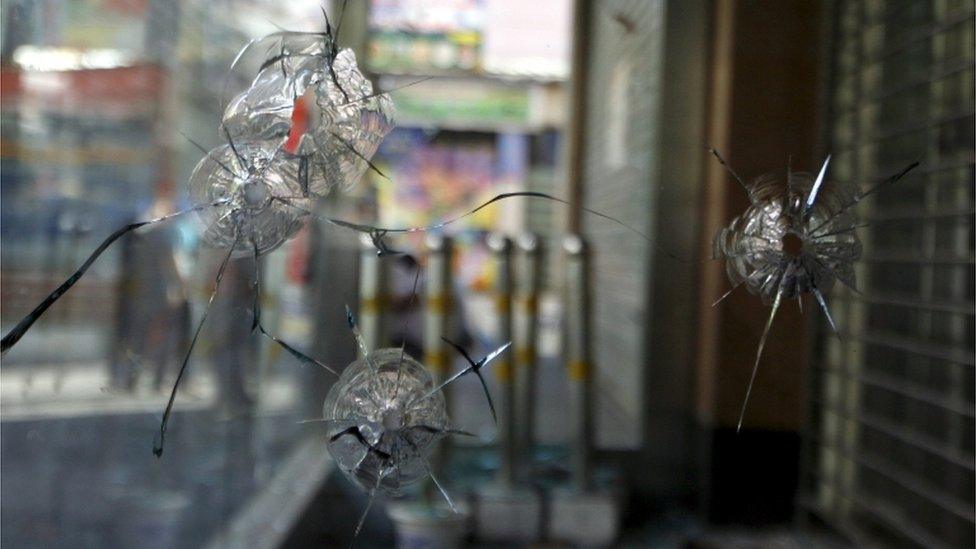
- Published2 November 2015
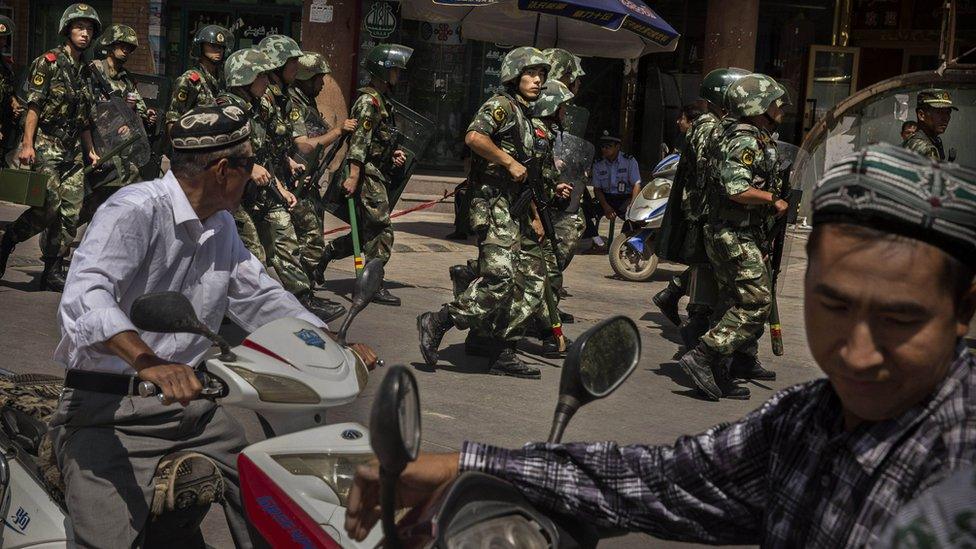
- Published24 May 2022
